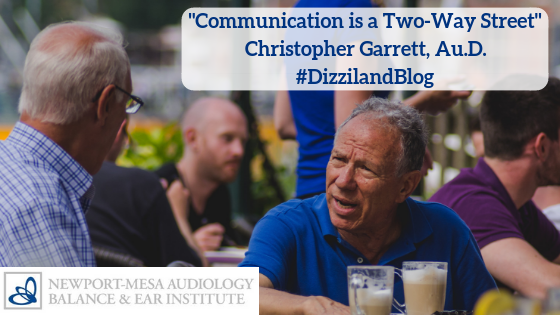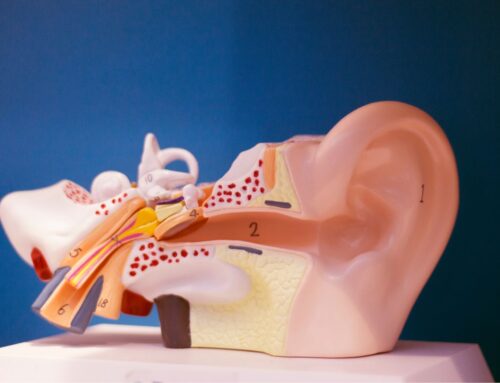
Practicing Good Communication Strategies and Self–Advocacy for Patients with Hearing Loss
By: Christopher Garrett, Au.D.
People who have hearing loss, often struggle in settings where communication is critical for success. Not being able to hear clearly and communicate effectively can have a negative impact on all aspects of life including school, work, social situations and self-esteem.
To help bolster confidence and solid communication despite hearing loss, utilize these strategies to help minimize confusion and misunderstanding. These strategies are also helpful for those who teach, manage teams and work with the public, as understanding hearing loss will help everyone’s communication success.
Reduce Background Noise
For those with hearing loss, background noise makes it particularly difficult to understand speech as it is in competition with other noises. Some strategies for better communication include:
- Turn off the TV when trying to have a conversation.
- Close open windows to reduce traffic or environmental noise from outside.
- Move closer to the person you are speaking with (3-6 feet); talking across a room or from different rooms is likely not effective.
- Avoid echoey or reverberant environments and finding a quieter place to talk (hardwood floors, high ceilings, metal tables and chairs all contribute to louder background noise).
- Sit in a corner at restaurants where the person with hearing loss can face their communication partner and keep the background noise behind them.
Talk Face-to-Face
- Visual cues such as lipreading and facial expressions carry a lot of meaning as to what we say, so make sure you are facing who you are talking or listening to.
- Talk in well-lit areas so facial expressions and lipreading can contribute to what you are saying or hearing.
- Don’t cover your mouths or talk while chewing or eating when talking to people with hearing loss, as this may cause communication break downs and hinder speech reading abilities.
Speak Naturally
- Talk naturally and try to pronounce words clearly, talking too fast is hard for those with hearing loss.
- Don’t talk too loud. It is difficult for those with hearing loss as it often distorts speech for the listener.
Changing Context
- Rephrase a sentence, if a person with hearing loss is not understanding the context of a conversation. Sometimes using different wording makes all the difference.
- Clarify what parts of the sentence you missed, if you are having a hard time hearing. Often some of the sentence is caught, but a few details were not heard. For example, try saying something like “I know you were talking about your new work office, but where did you say it was located?” as opposed to “What did you say?”
- When talking in groups, take turns talking and try not to interrupt each other. Those with hearing loss often have difficulty following multiple speakers.
- If the topic of conversation changes suddenly, make sure the person with hearing loss is following so they can still participate.
Advocate and Educate
- Acknowledge your hearing loss and let people know when you are having difficulty hearing. Let others around you know what to do to better communicate with you.
- Be understanding and patient when communicating with someone who has hearing loss. Communication break downs can be frustrating for everyone.
- Understand strategies for more effective communication. This can make all the difference if you have hearing loss or are a person who regularly communicates with those who have hearing loss.
For quality of life and cohesiveness at home, school, work and with friends, communication is key. If you use these communication strategies, it will go a long way to overcome the limitations of hearing loss.
“Blindness cuts us off from things, but deafness cuts us off from people.” – Helen Keller






Leave A Comment